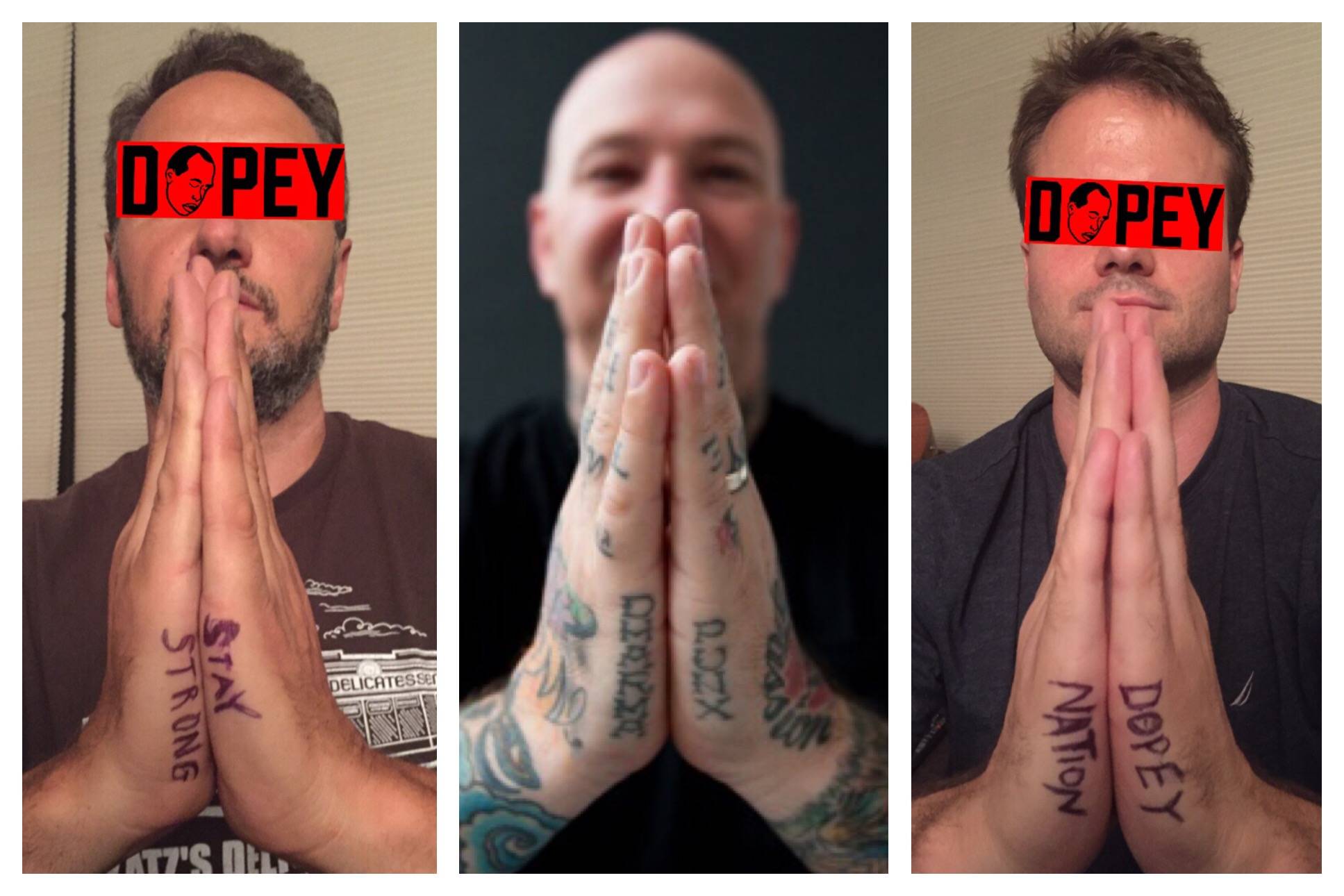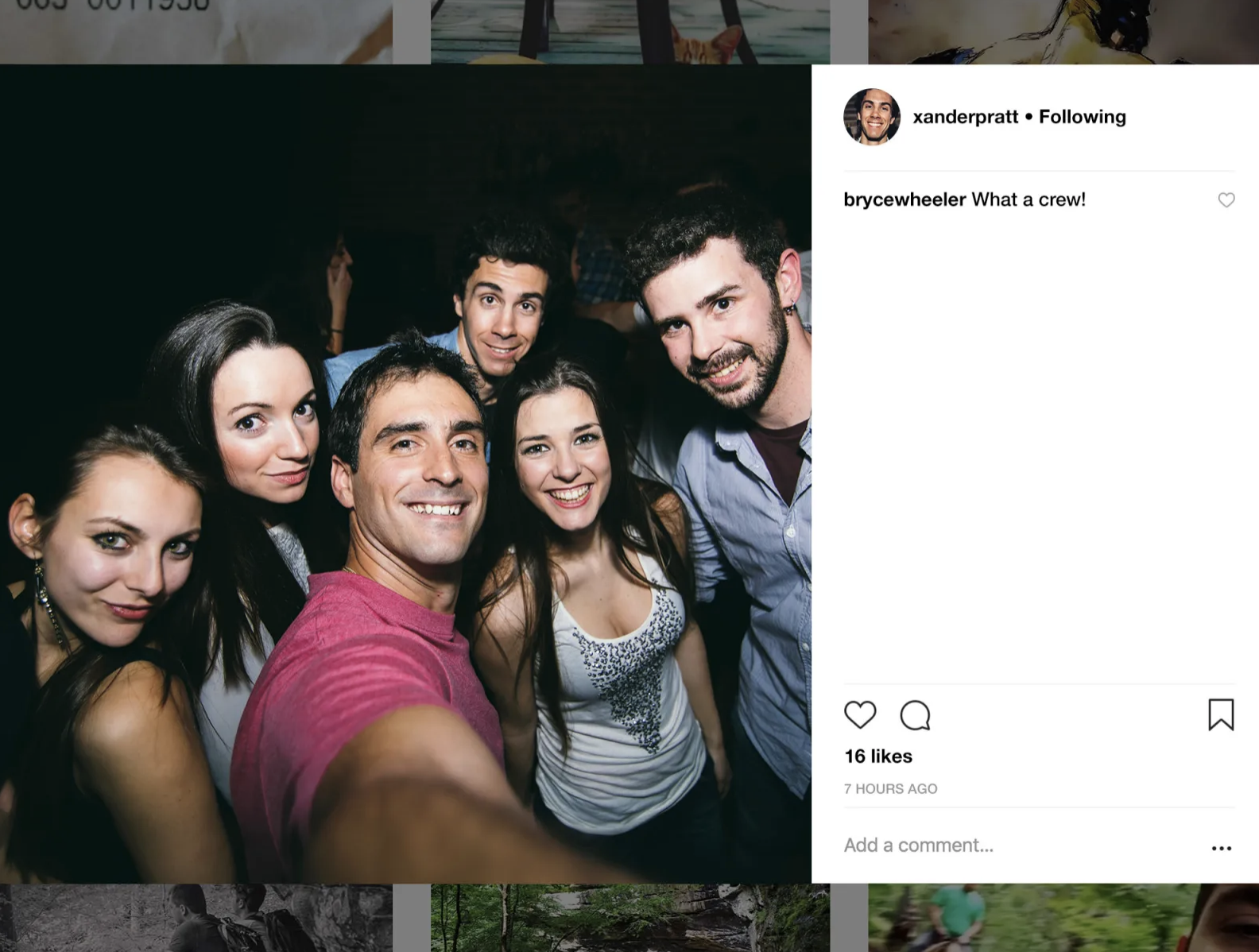
1. Meghan O’Gieblyn’s been on our radar of late, and not just because she’s featured so prominently in our new Faith & Doubt Issue. Meghan’s book of essays, Interior States, is phenomenal. American religiosity (and #seculosity) is on full display, and the theme continues in this new monthly series she’s doing at The Paris Review, called “Objects of Despair,” each one revolving around a “contemporary artifact” and “the mythologies we have built around them.”
The first artifact: fake meat. In her analysis of the “Impossible Burger,” which is a meatless burger that actually bleeds if you keep it rare, she starts not with ethics of veganism but with substitutionary atonement. How strange, Meghan ponders, when the oldest of the Abrahamic religions was adamant about the removal of blood from meat. Blood, in the Old Testament (and the New), was for atonement, not for food.
Christ was the final lamb led to slaughter, spilling enough heme to cover the sins of the world. His death inaugurated a new covenant of food ethics—one that arrives, with dramatic flourish, in the book of Acts. The apostle Peter has gone up to the roof to pray, but while doing so, he becomes hungry and falls into a trance. When he looks up, he sees an enormous sheet descending from heaven, containing every kind of animal: mammals, reptiles, and birds. A voice commands him to kill and eat the animals, but Peter recoils—“Surely not, Lord!”—since many of them are unclean. The voice bellows in reply: “Do not call anything impure that God has made clean.” The message could hardly be more blunt: there would be no more abstention, no more substitution; everything was fair game. But it is a dreary scene of liberation. It’s impossible not to hear in Peter’s protest the vague dread that always accompanies the abolition of a long-standing limit.
She goes on to note how science-minded secular Westerners have carried on this same dread liberation: free to eat whatever, but also recoiling in favor of new dietary doctrines and codes. What intrigues O’Gieblyn is the fact that science continues to seek out new ways to wriggle us out of our same old self-destructive habits with new asceticisms and creepy “Frankenmeats.” All of it, she says, is uncannily akin to the kind of saving we’ve always known we needed.
For now, the sacrificial ethic persists—at least superficially—in the language of “substitution,” which still appears on restaurant menus, where meat analogues are accompanied by an up-charge of a dollar or two. In raw financial terms, the new and improved fake meats are still more expensive than the lives of animals. And perhaps it is this fact—even more than the symbolism of blood—that reminds us that absolution always comes at a cost. Every dispensation of grace demands its pound of flesh.
I am reminded of one of the things Meghan said to us in her Faith & Doubt interview, the whole of which we’ll be sharing online later next week. While she no longer calls herself a Christian, she can’t help but see how, everywhere she goes, everyone’s, well, hungry for a righteousness they can’t seem to achieve themselves:
One of the ideas that I keep returning to in my essays is that my own experience of leaving the faith is, in some sense, symbolic of the loss the West has experienced as we’ve become increasingly nonreligious. My own experience leads me to suspect that spiritual longing is endemic to human nature: even after I’d outwardly denounced my faith, I began looking to other ideologies and lifestyles to fulfill that longing. And it seems to me that this is what’s happening on a larger scale, as more and more Americans leave behind religious belief. Instead of becoming purely rational agents, we increasingly displace those religious enthusiasms onto other things.
Quick plug: Orders for Faith & Doubt have been crazytown, so if you haven’t gotten one yet, shake a leg!

2. Not much to say about this but: “Listen.” Act One of the most recent episode of This American Life, “Wartime Radio,” tells the story of Dopey, a bro-brag-sesh-meets-public-service-comedy-hour. In the midst of ever-increasing opioid use, it’s a podcast for addicts, by addicts. Under the guise of dark comedy, two addicts turned the bleak addiction stories, of blackouts, hidden pee cups, and veterinarian robberies into opportunities for honesty, and therefore hope. It isn’t easy to stomach, though. While you’re at it, go back to this one.
And if you’re craving more stories of love and grief, the Modern Love story from last week, “Are You My Husband?” is a doozy. Megan Horst tells the story of “losing” her husband to a terrible bike accident, even though he survived. After his rehabilitation, Horst describes having to get to know a new man in her life who still looked like her capable, talented husband. Because he had changed so much, Horst describes the process of “ambiguous grief”—of mourning “someone who is alive, but who walks, talks, thinks, acts and looks different from before.” A powerful picture of steadfast love, even after the particular qualifiers for that love have changed.
On small pieces of paper, I wrote down what I miss about my old husband. With my basic drawing skills, I sketched him going no-handed on a bike and confidently starting a new home-remodeling project. I described the future I once imagined for us. I burned those pieces of paper in a small fire.
On a fresh piece of paper, I wrote, “Welcome.” Below that, I jotted down dozens of words and phrases describing my new husband — “doesn’t rush,” “gets lost but enjoys the experiences and keeps trying,” “revels in simple pleasures” — alongside sketches of him playing with our dog and hanging out with his new friends. That page I didn’t burn. I used it to welcome this stranger into my life.
3. David Brooks lightens the air at the NYT offices this week with this commentary on the dishonesty of the away message:
Dear Correspondent,
Thank you so much for emailing us at Pantheon Communications Advisors. Unfortunately, I will be away from the office and on vacation until Feb. 16. I will be completely unplugged with no Wi-Fi. I look forward to responding to you when I return.
Obviously, this away message does not apply if you are more important than I am. If you are richer, more powerful or more famous than I am, you will receive my actual email response shortly after you receive this away message. As you know, away messages are the most dishonest form of modern communications. When we say we are away on vacation, we actually mean we are on vacation from people who need us more than we need them. If you are the sort of person I normally suck up to, you should know that my sucking up takes no breaks. For you, I am totally plugged in…

And while we’re on the subject of public dishonesty, a zinger from the Bee: “God Agrees To Spare Virginia If Just 10 Democrats Who Never Wore Blackface Can Be Found.”
4. Our friend at Commonweal Matt Sitman had the chance to sit down with none other than Fran Lebowitz in New York. The whole conversation is worth your time, but Fran really brings the goods in the last bit of the conversation. They’re talking about Andy Warhol’s funeral:
FL: There were so many people that they had a priest at the end of every aisle distributing Communion. I was sitting there—not taking Communion—and I looked to the line that was to the right of me. There was Claus von Bülow. Do you know who he is? Claus von Bülow was out of jail and I see him taking Communion, and I was thinking to myself, “I’m not an expert on Communion, but I’m pretty sure that you have to confess before you can take Communion.” Is that not true?
CW: You’re not supposed to take Communion if you have unconfessed mortal sins.
FL: Right, so having tried to kill your wife would be up there. I thought, “I wonder if he confessed before?” This is why there are so many Catholics in the world. I always say to people, “Here is what Christ was. Christ was the one who said, ‘I forgive you.’” Christianity is about forgiveness. That’s what I believe. Christianity is 100 percent about forgiveness. The Christian God is a forgiving God. The Jewish God is a judge. So when Christ came and said, “I forgive you,” of course almost every single person said, “Yes!” …. Forgiveness is a Christian thing. It is what Christianity is. That’s what I believe the popularity of Christianity is. Because if you say to people, “Forgiveness? Or no forgiveness?” there is a certain kind of person who’s going to say, “No forgiveness.” But there are very few of them.
5. Speaking of forgiveness, our friend Josh Encinias chatted with Jim Gaffigan about one of the new movies he’s been in lately, which showed at Sundance, Light from Light. Besides the obvious Nicene Creed reference, the movie is also about ghosts in the mountains of East Tennessee. Josh asks Gaffigan about his faith and how that’s impacted the way he’s thought about his career, his family, and his relationship with the church, but this line stuck out.
I need to believe there’s something that can forgive me. That’s the crux of it: is that I need to believe that I’m not in control. I need to believe that not only am I not in control and that something will forgive me, but that something’s on my side.
6. Weekly dose of Onion goodness: “‘What A Crew!’ Comments Man On Instagram Photo of Backstabbing Traitors Who Couldn’t Be Bothered To Invite Him To Margarita Night.”

And this list from McSweeney’s is golden: The Nine Circles of Social Awkwardness Hell, of which this is the sixth:
You walk down a long hallway toward a colleague you only kind of know, worrying about whether you should say something. You are very sweaty. Torn between “hi” and “hey,” you go with finger guns and “hot enough for you?” You get exactly three seconds of respite before you see the next person approaching.
7. Finally, two stories of grace to get you through the weekend. The first comes from the Boston Globe, about a neighborhood that rallied around a family after discovering that their baby girl was born deaf (ht DR).
They were married in the fall of 2013. They moved to Auburndale in the summer of 2016. Three months later, Samantha was born. Within a week, newborn screening tests showed that their infant daughter was deaf. “She was the first deaf person my husband and I had known,” Glenda Savitz, 33, told me the other morning as Sam sat in her lap.
“So it’s a surprise. Unexpected. But I think I’m someone who’s like: OK. What do we do? She’s a week old. We’re going to be learning sign language. There was no question that was going to be important to her development and her growth.’’…That’s how American Sign Language has become the second tongue now spoken on one end of Islington Road.
This one comes from Medium, and if there’s a better illustration of 1 John 4:19, I don’t know it. The writer, Kristine Levine, tells the story of moving as a kid to the Oregon coast with her mother, who was looking for a fresh start getting sober. Totally broke, with no child support and going hungry, Kristine’s mother grabbed her hand and walked to a stranger’s door.
“This is my daughter, Kristine,” my mother stated. “We have no food. She’s had nothing to eat but potatoes for a month, and now we don’t even have any of those left. I don’t care about myself, but could you please give her something to eat?”
The old woman was short and fat with dark skin and black hair twisting around her head. Her name was Anita Vanover. Her husband was a tall white man who was just called Van. I could see into their cottage; the table was set, and Anita and Van were obviously just sitting down to eat. The smells coming from inside made me drool. I don’t remember Anita saying anything to my mother or even asking her husband first if she could give us something, but I remember her packing up her table: the pot roast, the carrots, the gravy, the potatoes. She handed it all to my mother.
Reflecting on this story as a mother herself now, Kristine knows how she’s “a little too fat, a little too giving.” And she wants the same for her own daughter, 30 years later. When she was in need, she was not given a sensible gift, she was given an extravagant one.
I told her that my kindergarten teacher thought I was “retarded” because I was so hungry that I didn’t perform well in school and was always slower than the rest of the class. I told her that Anita could have just gone to her cupboard and made me a peanut butter sandwich, and my mother and I would have been so grateful. But she didn’t. She gave the best she had.
Strays
-Oliver Burkeman says, “No anxiety, no hope.”

COMMENTS
Leave a Reply












